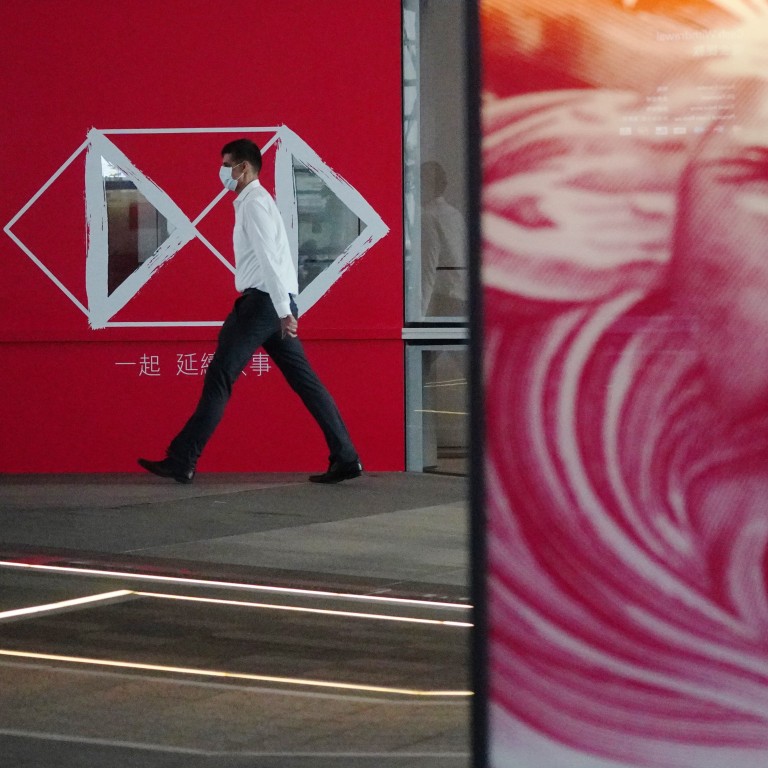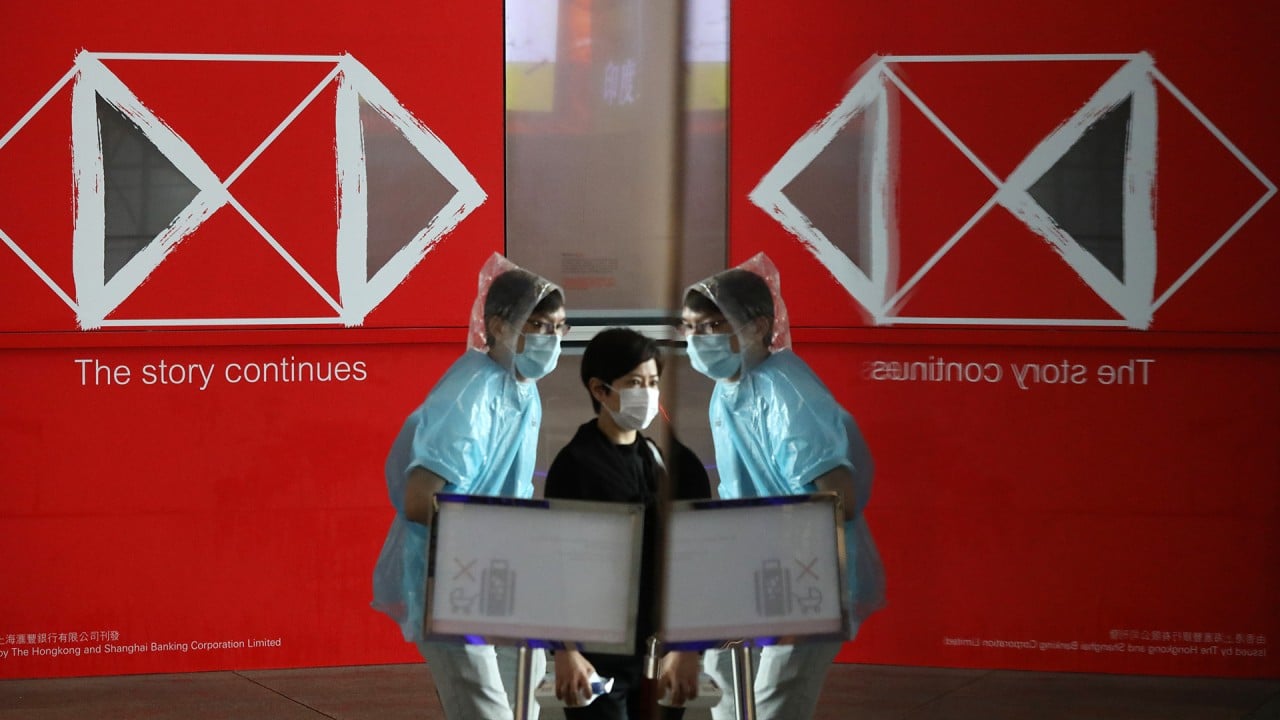
Could HSBC shares, already at historic lows, sink further as US-China relations worsen, investors lose faith?
- Rising US-China tensions, weaker operating environment and slashed dividends are testing the lender’s investor base as it doubles down on Asia
- Bank has lost US$84 billion in market capitalisation since the beginning of the year
For decades, HSBC was a solid bet for investors.
The London-based lender benefited from its ability to bridge the divide between East and West, as mainland China grew into the linchpin of the world’s supply chains, and it boasted a steady income from a large deposit base, as the biggest of the three currency-issuing banks in Hong Kong.
The 155-year-old bank also paid a healthy dividend that retail investors in the city regularly relied upon to supplement their retirement income. Similar to US Treasury bonds, its shares are a common gift for birthdays, graduations and anniversaries.
But, the faith of its Hong Kong investor base has been sorely tested in the past year, as the lender repeatedly found itself caught up in an increasingly fraught relationship between Washington and Beijing, and after it suspended its dividend in April at the request of its chief regulator in the United Kingdom, according to analysts, brokers and investors.

02:05
HSBC sees second-quarter profits plunge by 82 per cent thanks to coronavirus
“What is driving the share price? One of the major concerns is the uncertainty ahead, especially in times where the US and China [relationship] is growing quite tense,” said Simon Yuen, the founder of Hong Kong investment manager Surich Asset Management.
Yuen said he is recommending that clients hold off on investing in HSBC until after the American presidential election in November, as there might be a more clear direction on HSBC’s share price then. This spring, Yuen advised a group of rebel shareholders who lobbied the bank to reinstate the payouts this year.
Since the beginning of the year, HSBC’s stock has lost US$84 billion in market capitalisation, with its share price falling by more than 54 per cent in Hong Kong and 52 per cent in London. Banks are generally trading lower year to date, but HSBC’s decline since April is much broader than at most of its global rivals.
HSBC, in part because of its high dividend, was seen as a safe haven during market sell-offs in the past, said Fahed Kunwar, an analyst at Redburn in London. But, its stock is the worst performing among banks in Europe by some distance this year since markets, unnerved by the coronavirus pandemic, stabilised in April, he said.
“Something has changed in the way HSBC, the equity, is perceived,” Kunwar said. “It should be outperforming, instead it is underperforming.”
Ping An Insurance (Group), the company’s single largest investor, meanwhile, has not changed its view on HSBC despite the recent free fall in its share price, according to a spokesman. The Shenzhen-based insurer previously said it saw good prospects for the bank’s development and viewed it as a long-term investment.
But other investors appear to be less convinced.
HSBC’s Hong Kong shares have dropped by 29 per cent since April 1, when it announced it would not pay its final dividend for 2019 and would suspend payouts this year. By comparison, Standard Chartered, another of the city’s currency-issuing lenders that also suspended its dividend at the request of the UK regulator this year, declined by 14 per cent in Hong Kong and 19 per cent in London over the same period.
At the same time, shares of UK rivals Barclays, Lloyds Banking Group and NatWest Group are outperforming HSBC this year despite their own dividend suspensions and increasing concerns about the economic fallout from the pandemic and Britain’s planned exit from the European Union.
Kunwar, the Redburn analyst, said a historically low interest rate environment was likely to hit HSBC harder this year than its European or UK rivals because its business is more geared to US rates. The US Federal Reserve cut its key benchmark rate to near zero in March, while rates have been lower for much longer in Europe.
The weaker operating environment – combined with the dividend suspension and uncertainty over US-China relations rumbling in the background – is spooking some investors, who might have bought as the price declined this year, Kunwar said.

HSBC declined to comment on its share price movement.
The bank, founded in Hong Kong in 1865, has long been tied to supporting trade between the East and the West. But, worsening relations between the world’s two biggest economies this year have raised questions among some investors about the viability of its footprint.
The Hong Kong national security law’s official English version:
Foreign banks that engage in “significant transactions” with sanctioned officials could also face sanctions themselves under the recently passed Hong Kong Autonomy Act in the US.
Political uncertainties, ranging from the unreliable entities list to the Hong Kong Autonomy Act, are putting pressure on HSBC and other lenders in Hong Kong, according to Yafei Tian, a Citigroup analyst.
“Should it be on the list, even without tough measures taken, [HSBC’s] mainland China business would likely be adversely impacted, as its clients reduce transactions,” Tian said in a research note on September 22. “Mainland China clients in Hong Kong might also avoid unnecessary transactions with HSBC HK.”
In the first half of this year, Asia accounted for 55 per cent of its operating income before provisions, and nearly all of its pre-tax profit.
Francis Lun Sheung-nim, the chief executive of Geo Securities in Hong Kong, said HSBC was unfortunately caught in a struggle between two superpowers and its share price could dip into the low 20s if China were to move to restrict its mainland operations.
The only way for it to exit this “political mess” would be for the bank to split its Asian business from its US and European operations, he said. “HSBC is a product of the colonial era. It was borne out of colonial privilege. It obtained a dominant position in the Hong Kong banking scene because of colonial privilege,” Lun, who is also an HSBC shareholder, said.
“It is an anachronism in this age of nationalism.”

